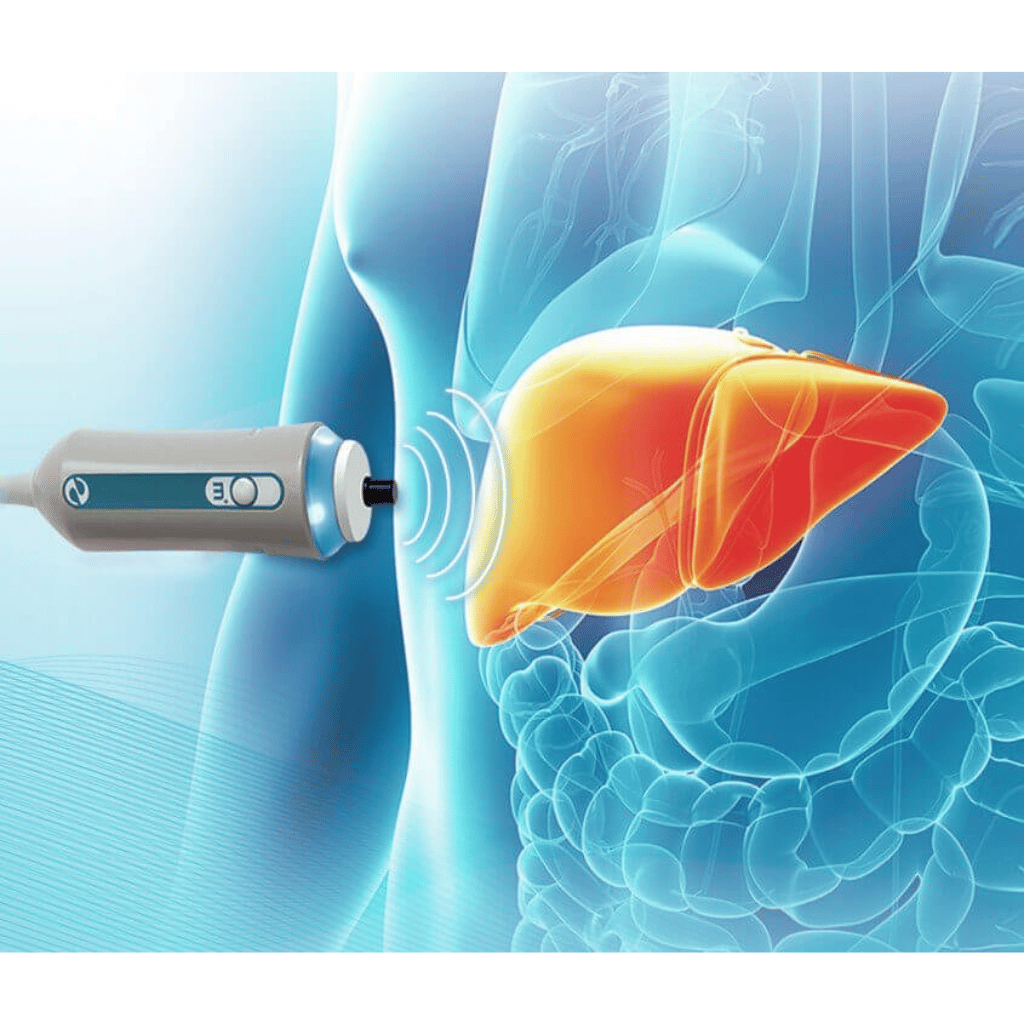What is Liver Elastography (Fibroscan)?
Liver elastography, commonly known as Fibroscan, is a non-invasive ultrasound-based test used to measure the stiffness of the liver. It helps assess the degree of fibrosis (scarring) and fat accumulation in the liver, which are key indicators of liver diseases like fatty liver, hepatitis, and cirrhosis.
This test is an advanced alternative to liver biopsy, providing accurate results without requiring surgery or needles.

Why is Liver Elastography Important?
- Detects liver fibrosis early – Helps diagnose liver scarring before it worsens into cirrhosis.
- Monitors liver disease progression – Essential for patients with fatty liver disease, hepatitis B & C, or alcohol-related liver disease.
- Non-invasive and painless – Unlike liver biopsy, this test is quick and does not involve any pain or recovery time.
- Guides treatment decisions – Helps doctors determine the severity of liver damage and the best course of treatment.
FREQUENTLY ASKED QUESTIONS
Q.1. Who should get a Liver Elastography (Fibroscan) test?
This test is recommended for people who:
- Have fatty liver disease (NAFLD/NASH)
- Have hepatitis B or C infections
- Consume excessive alcohol
- Have obesity, diabetes, or metabolic disorders
- Have been diagnosed with liver cirrhosis or fibrosis
Q.2. Is Fibroscan better than a liver biopsy?
Yes, Fibroscan is a safer, quicker, and pain-free alternative to a liver biopsy. A biopsy requires a needle insertion into the liver and has risks like bleeding or infection. Fibroscan, on the other hand, is completely non-invasive and provides immediate results.
Q.3. How often should I get a Liver Elastography test?
The frequency depends on your health condition. If you have a chronic liver disease, your doctor may recommend yearly monitoring to track liver changes. If your liver is healthy, the test may only be needed occasionally as a preventive check.
Q.4. Can the results of Fibroscan be reversed with lifestyle changes?
Yes! Early-stage fibrosis and fatty liver disease can be improved by:
- Eating a healthy diet (low fat, high fiber)
- Losing weight if overweight
- Avoiding alcohol and processed sugars
- Exercising regularly
- Managing diabetes and cholesterol
However, severe fibrosis or cirrhosis may be irreversible and requires medical management.
Q.5. Does Liver Elastography (Fibroscan) have any side effects?
No, the test is completely safe. It uses ultrasound waves, which are radiation-free, making it safe for pregnant women and children as well. There are no risks, pain, or recovery time needed.
